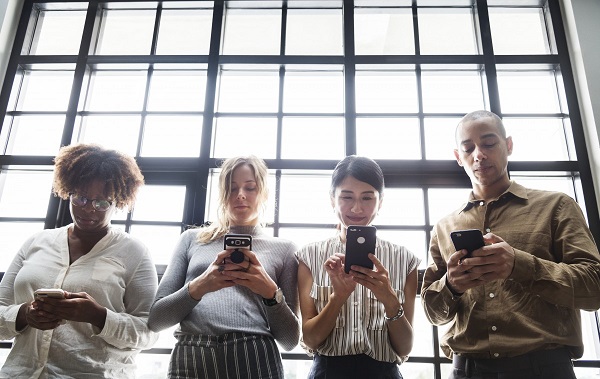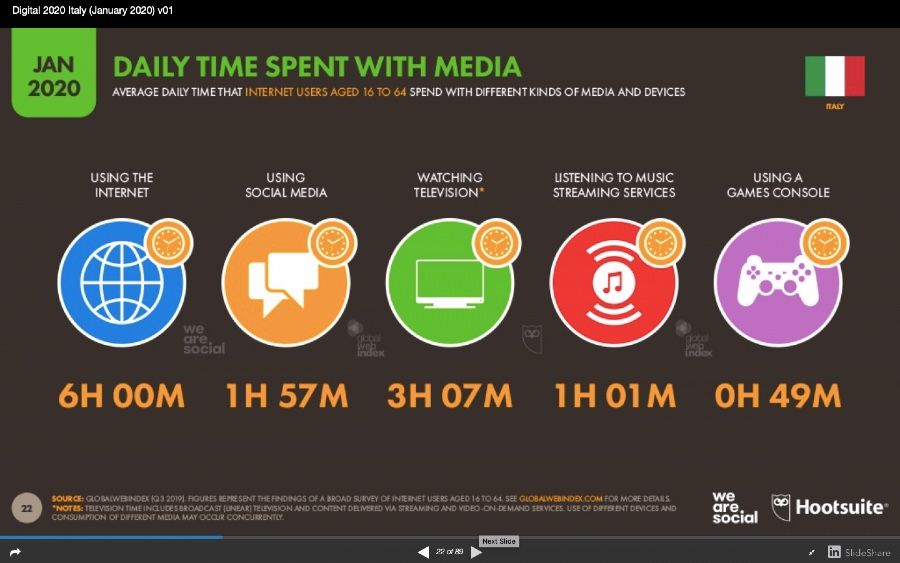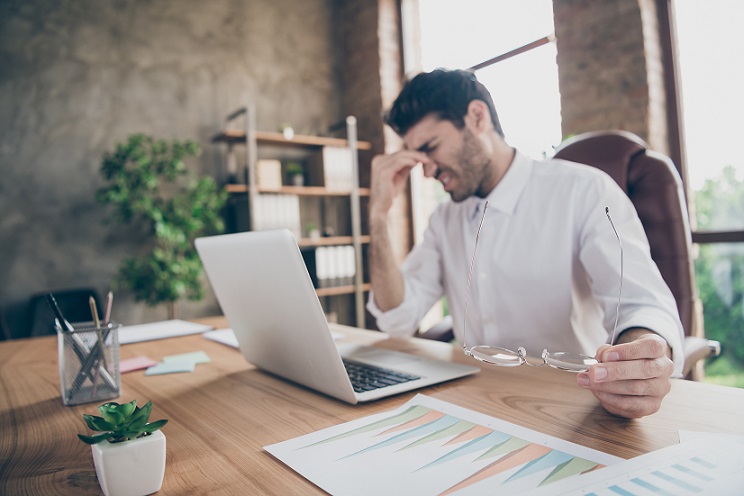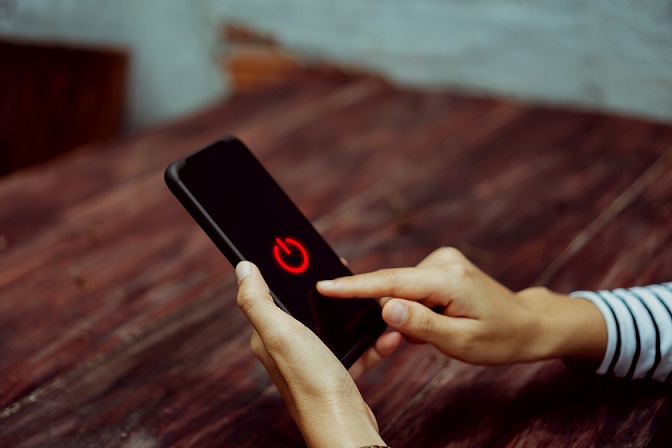What digital detox is and why you need it
Nowadays, the health is very important topic. Everyone tries to be fit and healthy, we want to feel better and usually the key word of our healthy lifestyle is “detox”. It is very fashionable, especially related to eating habits. The idea is to purify our body of toxins and stop consuming certain type of food. What about this method with smartphones and the internet?
I am sure that after many hours in front of a screen or connected to the internet, you feel tired, stressed and distracted. Am I right? At the same time, however, do it other way seems to be impossible.
In this article I would like to explain how it is possible to “switch off” and dedicate yourself to your well-being.
1) What is the meaning of digital detox?
The official definition of digital detox is as follows:
“A period of time in which a person voluntarily gives up using digital devices such as cell phones or computers, in order to reduce stress and focus on social interactions in the real world.”

The reaction of our body to the excessive use of digital devices are feelings like anxiety, stress, restlessness. From time to time we need to disconnect and feel the freedom, it is important do it regularly and it is not necessary to delete all our social media accounts.
Digital detox experience means that you voluntarily give up your devices such as smartphones, PC, TV for a brief period of time and you can dedicate it to yourself doing all activities that you love.
The best place for digital detox is definitely nature: beach, forest, countryside, park. Exposure to nature makes us feel better and relaxed, it contributes to our psychical wellbeing, reducing blood pressure, tension and heart rate.
My first digital detox was in Portugal, in a fantastic house in the hills of Aljezur and it lasted 5 days. It may seem like an extreme choice but in fact everyone can start with digital detox depending on their needs. Even short experiences lasting a few hours can be a good start, the important thing is to start unplugging and become aware of how much we really need it.
My opinion is that at the beginning always is better to participate in an event organised by an expert who will guide you in the best possible way and organise ideal activities for this type of experience.
Digital detox may seem like an extreme choice, but trust me, we all need it. It should be our first step to realise how much time we waste in front of the screens and how good it feels without it. It is also really important to do it consciously to avoid an extreme come back to the previous behaviour – not to start to use a mobile phone more than before the digital detox experience. Knowing is the key because more informed you are, less likely you are to fall “into the trap” again.
The first of all, we should know the correct pattern of behaviour and the strategy of the producers of smartphones and creators of social media. That’s the topic of this blog in which you can find out about many tips regarding digital well-being.
2) Why do we need digital detox?
Over the past decade social media have become an integral aspect of everyday life. We are using technology day by day and it has become a conscious lifestyle choice. We can not be disconnected, otherwise we do not exist. We are always disponible in our social media accounts, e-mails are coming, Whatsapp is full of messages, our smartphones do not take a rest. Why should we be always “online” and permanently distracted by technology?
Unfortunately, the smartphone is the first thing we touch upon waking up and the last thing before falling asleep, we even bring it to the bathroom! During the last 10 years it has become an integral part of our body, it can be considered as the extension of our arm (have you noticed that wherever we are, it is always easily accessible with our hand?).
Statistics show that on average the Italians spend:
- 1 hour and 57 minutes on social media;
- 4 hours per day with our smartphone;
- 6 hours using the internet in general.

Source: “Digital 2020” – survey realised by “We are Social” and “Hootsuite” – https://wearesocial.com/it/digital-2020-italia
It means that in total the Italians use the internet:
- 42 hours per week (about 2 days)
- 180 hours per month (10 days)
- 2190 hours per year (about 122 days)
- 122 days a year! It is unbelievable!
3) What impact do the internet and mobile phones have on our life?
In addition to wasting a lot of time, various scientific studies confirm that excessive use of the mobile phone involves:
- increased stress and anxiety;
- problems regarding the quality of sleep and nutrition;
- distraction;
- laziness and passive behaviour;
- damages eye sight and posture;
- damages our attention, ability to focus and short-term memory;
- reduces our self-esteem, creativity and productivity;
- limits our privacy;
- destroys interpersonal relationships.
In addition, in recent years, many diseases have been connected to the excessive use of digital devices:
NOMOPHOBIA (no-mobile-phone phobia) – the fear of being without a mobile phone or internet connection.
To explain this term in practise, here is a following example: Adam Atler, a New York University marketing professor, conducted a study in which he asked participants what they preferred between a broken elbow and a broken cell phone. It is unbelievable but 46% of respondents said they preferred a broken elbow.
FOMO (fear of missing out) – the fear of missing something, of being cut off from the rest of the world.
When a notification arrives on your mobile phone, don’t you feel the urgent need to check what it is? It is almost impossible to resist.
It can be compared to the feeling you get when watching a suspenseful movie. You have to know what is happening! The truth is that we are living like this all the time, we are in a constant state of suspense. Due to the notification system our body produces a large amount of dopamine and cortisol, which leads to a need to check our mobile phone more and more often. Otherwise we feel like losing something. That’s why notifications exist.
The DIGITAL BURNOUT: Feeling anxious, tired, stressed and exhausted because of prolonged use of computers and smartphones. The smart working people are always exposed to the light of the screen and to a daily flurry of data and information. This combination is a very dangerous mix that may cause headaches and visual damage and a high level of stress and anxiety.

How many important moments in our life are we missing because of this? We are wasting time, emotions, opportunities and people. I love my freedom, time and the closest ones. So I think the most important question we need to ask is:
“What are we losing in all of this?”
“What are we really giving importance to?”
Don’t get me wrong, I don’t mean that we should throw away our phones and go back to the stone age. The smartphone is fantastic, it is one of the most revolutionary and important inventions in the history of mankind. I think it makes our life much easier, more comfortable and gives us a lot of opportunities. Like all great inventions, it has both extremely positive and negative factors. The point is, if used in the wrong way, it can truly harm our life.
We should slow down for a moment, take time to reflect, to be more aware and to find the right “digital wellbeing” that makes us live better.
4) What is not digital detox?
The digital detox is not a rehabilitation program. Participating does not mean that you are a part of a cult or an “addict”. It means that you love yourself, you are curious and want to try a new experience (it is about 15 years that we are in a daily contact with our phones). Do you remember a period a few years ago? When you weren’t always available, when you could talk to the people without being distracted or feeling ignored, when you enjoyed the experience at full drive without taking photos or doing videos for post them immediately to receive the approval of your “friends”.
After the digital detox you will resume using your smartphone, social media and your favourite apps. You will have a different mindset. You will not waste time doing useless things, you will not allow your phone to change your mood, to make you feel worse. Instead, you will be more productive and focused, less anxious, more active and more “connected” with the people around you, with your real life.
5) The benefits
Let’s find out the good effect of digital detox:
- Feeling super relaxed;
- Eliminating stress;
- Your mind taking a break;
- Being full of energy during the day;
- Reducing the negative effects on your eyesight;
- Being more productive, creative and focused;
- Sleeping better and in the morning wake up with much more energy;
- To understand how much time and energy you waste every day with your mobile;
- Having time to reflect, and perhaps make those important decisions you have been waiting for a long time.
6) My mission: what you will find in this blog
By following this blog, you will be much more informed about digital education. Especially:
- Damages caused by excessive use of digital devices;
- How smartphones are made to make you to use them more and more;
- Tips and solutions to use it responsibly;
- Reviews on retreats and books related to digital detox;
- Possibility to book one of our digital detox experiences.
I want to help other people to live better by improving their relationship with digital devices. That’s my purpose and the reason why I am doing all this. I think the technological change happened too quickly that we didn’t have time to adapt. We do not fully know the power of these tools that we always hold in our hands. That’s why we use them incorrectly and it hurts us.
I also think that having a good relationship with technology will be one of the biggest challenges during the next decades. I want to give my contribution and help as many people as possible to achieve the right balance between real and digital life.
If we don’t do something, the situation will get worse year after year.
Don’t let technology take over your life. Logout, live now!
If you liked this article, share it with your friends, keep following us on Facebook and Instagram and access the program of our upcoming digital detox events.


